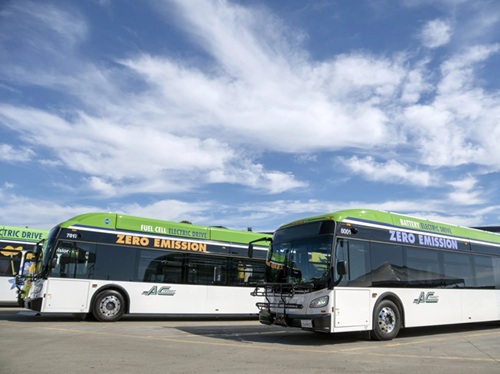The North Carolina Department of Transportation, in partnership with N.C. State University’s Institute for Transportation Research and Education, recently launched a “groundbreaking project” aimed at mapping unmarked burial sites belonging to historically marginalized groups statewide.
[Above photo by NCDOT]
The research project, led by NCDOT’s Office of Civil Rights and N.C. State, is scheduled to start this summer and extend through the summer of 2026. The project will focus on identifying and mapping Indigenous burial sites, graves of formerly enslaved individuals, and historic African American cemeteries.
The agency said unmarked burial sites have long faced disproportionate risks and vulnerabilities as North Carolina’s popularity leads to increased commercial and residential development and transportation projects; with experts concerned that development coupled with more frequent storms could make it more difficult to identify and preserve these burial sites.
[Editor’s note: This 2023 blog post from the Washington State Department of Transportation illustrates the important connections between the sciences of archeology and transportation infrastructure construction.]
Researchers with NCDOT and N.C. State will kick off this effort by trying to identify cemeteries in Edgecombe County, which sits about 60 miles east of Raleigh. An advisory committee will gather feedback from the community and work to preserve its cultural heritage.

The cemetery mapping initiative will involve a thorough literature and policy review, followed by a community outreach effort in Edgecombe County to document sites that may only be known through word of mouth and generational knowledge.
“This partnership is important as it will help in preserving and honoring the heritage of these communities, ensuring that their stories are not forgotten,” said Tunya Smith, director of NCDOT’s Office of Civil Rights, in a statement. “Additionally, this research will contribute to creating a more comprehensive understanding of our state’s history and heritage.”
Other state departments of transportation have been engaged in similar archeological research and preservation efforts.
For example, in 2022, archaeologists from the Maryland Department of Transportation excavated two small Colonial-era cabins near the historic Elkridge Furnace in Howard County, MD, located on land originally purchased for a highway project.
That effort follows a previous dig conducted by Maryland DOT’s archeological team in 2021 that helped discover a historic home site once owned by the father of famed abolitionist Harriet Tubman, who helped enslaved individuals escape north via the Underground Railroad.
 States
States
Jain Nominated to be New Jersey DOT Commissioner
January 23, 2026 States
States

